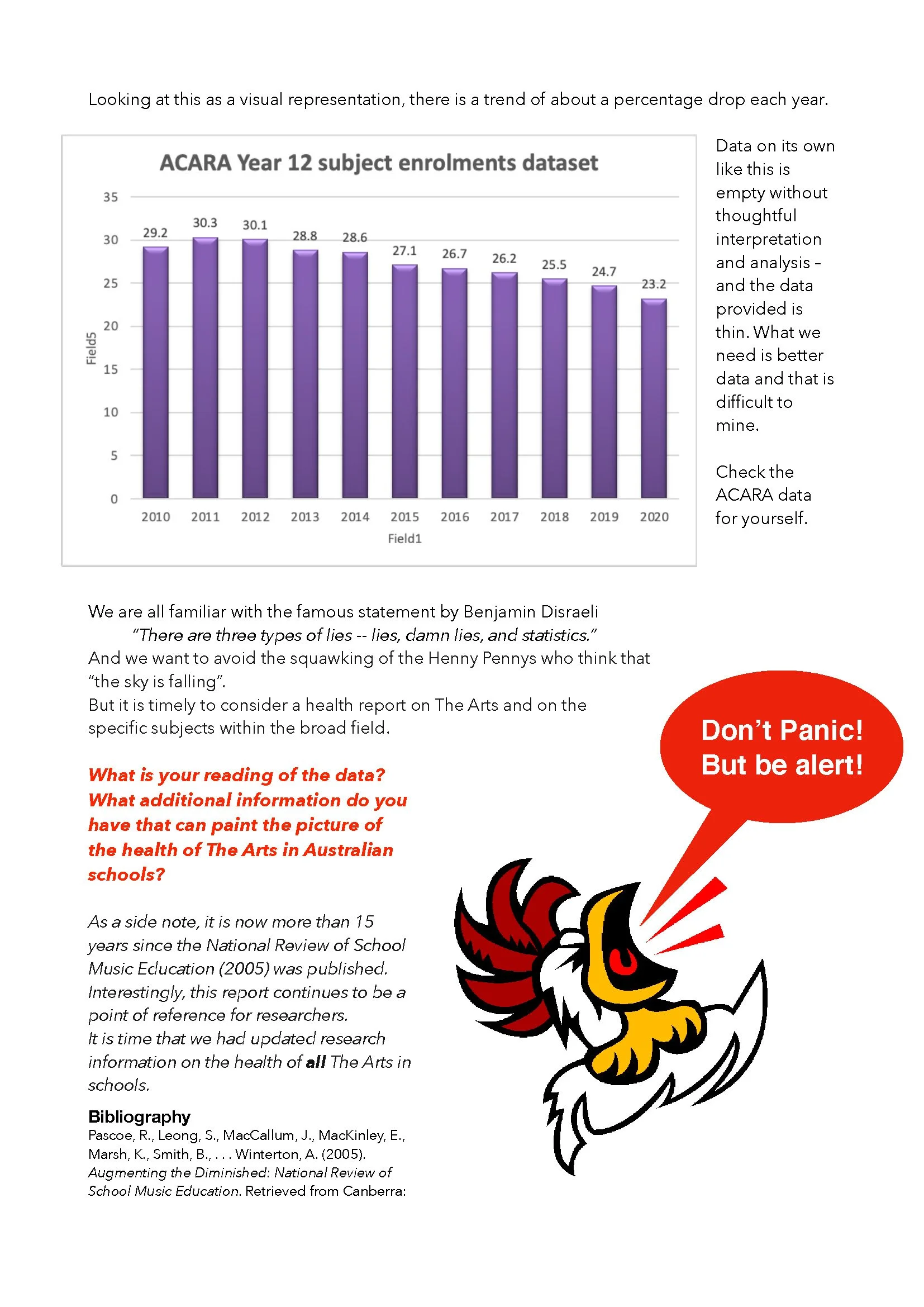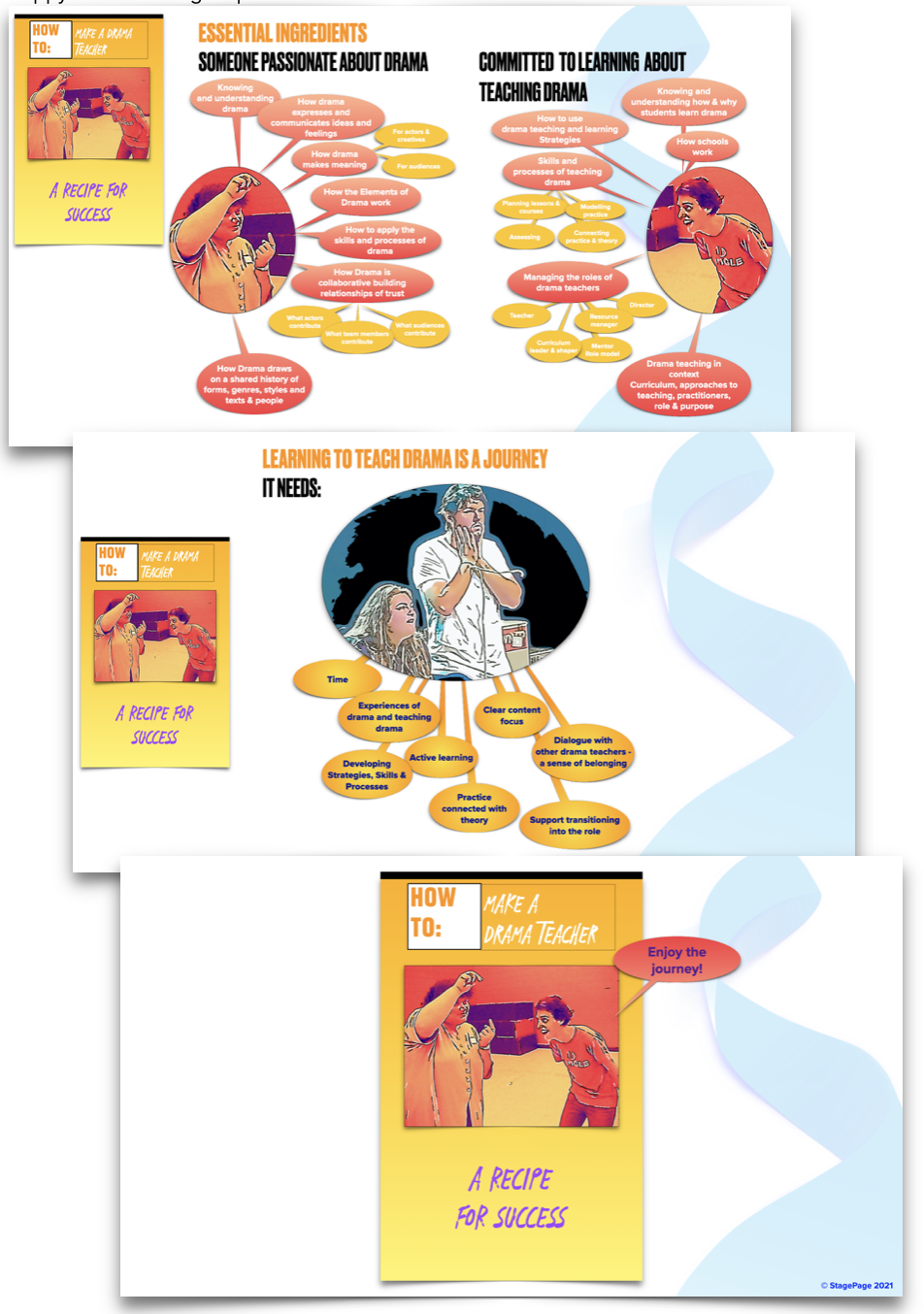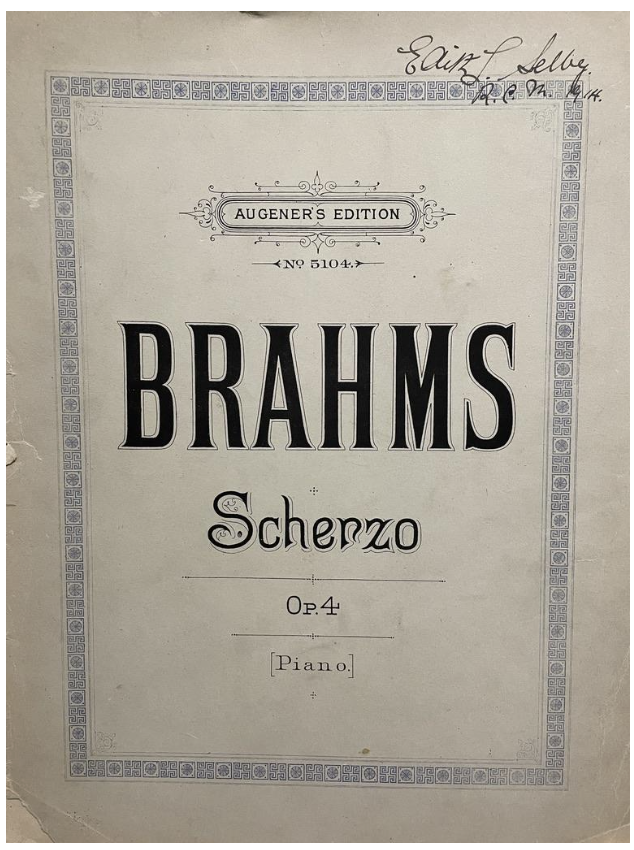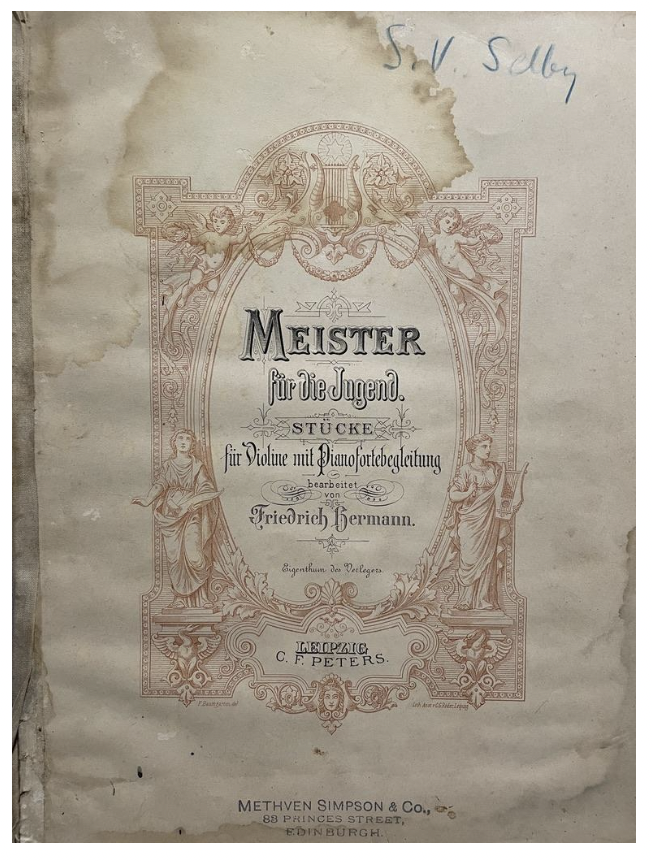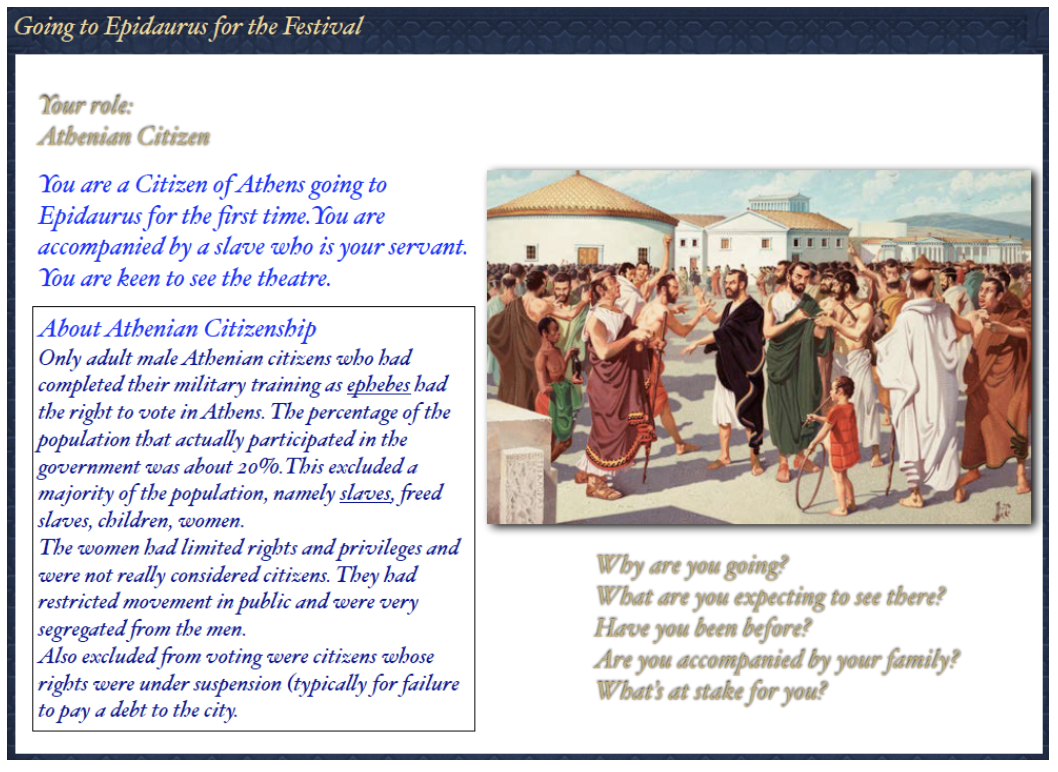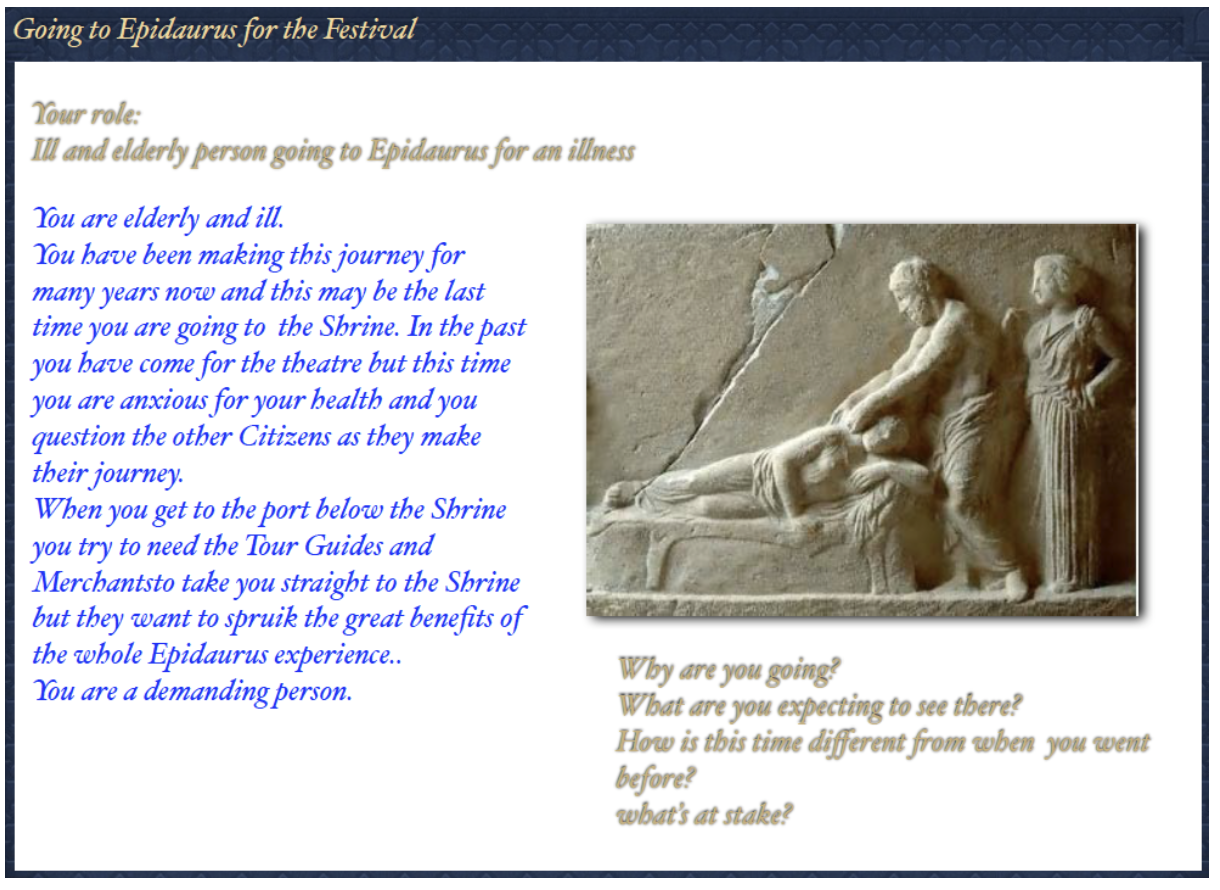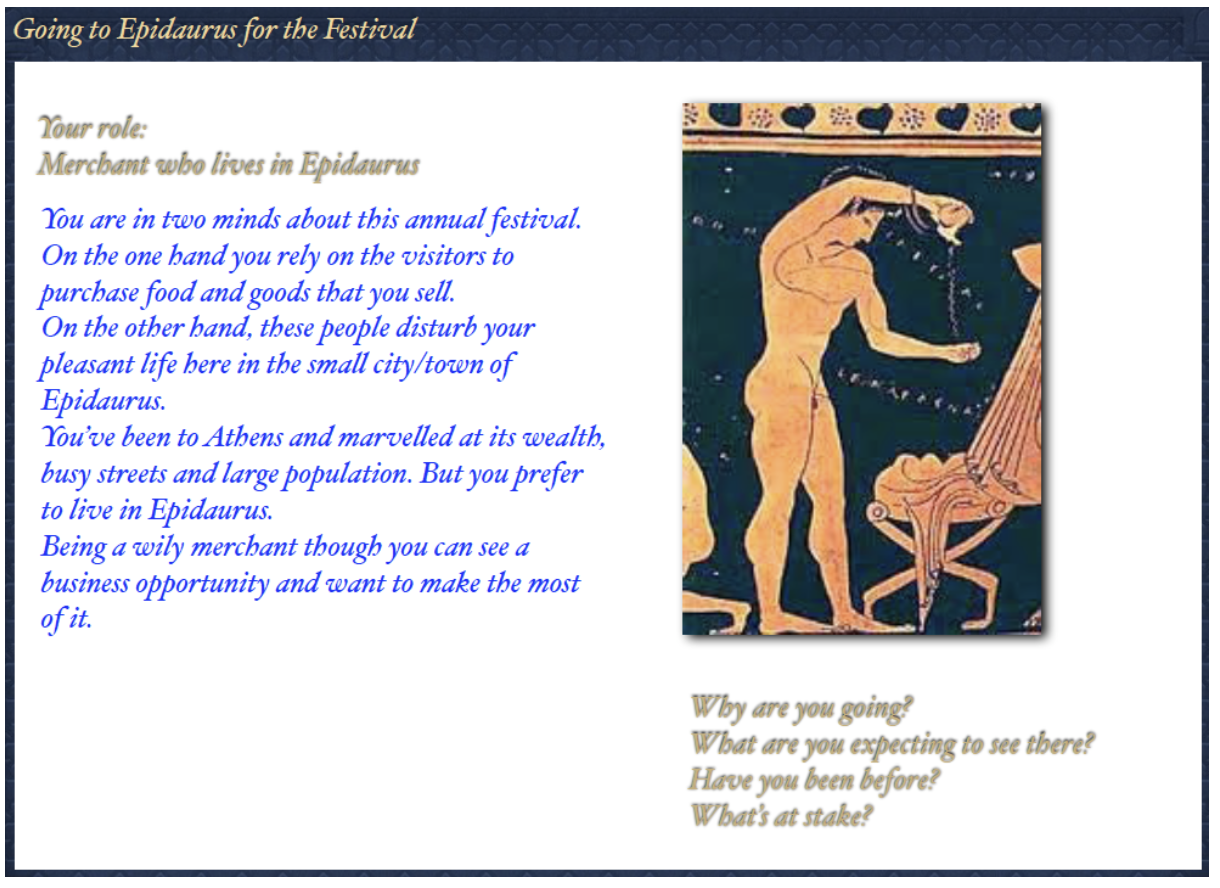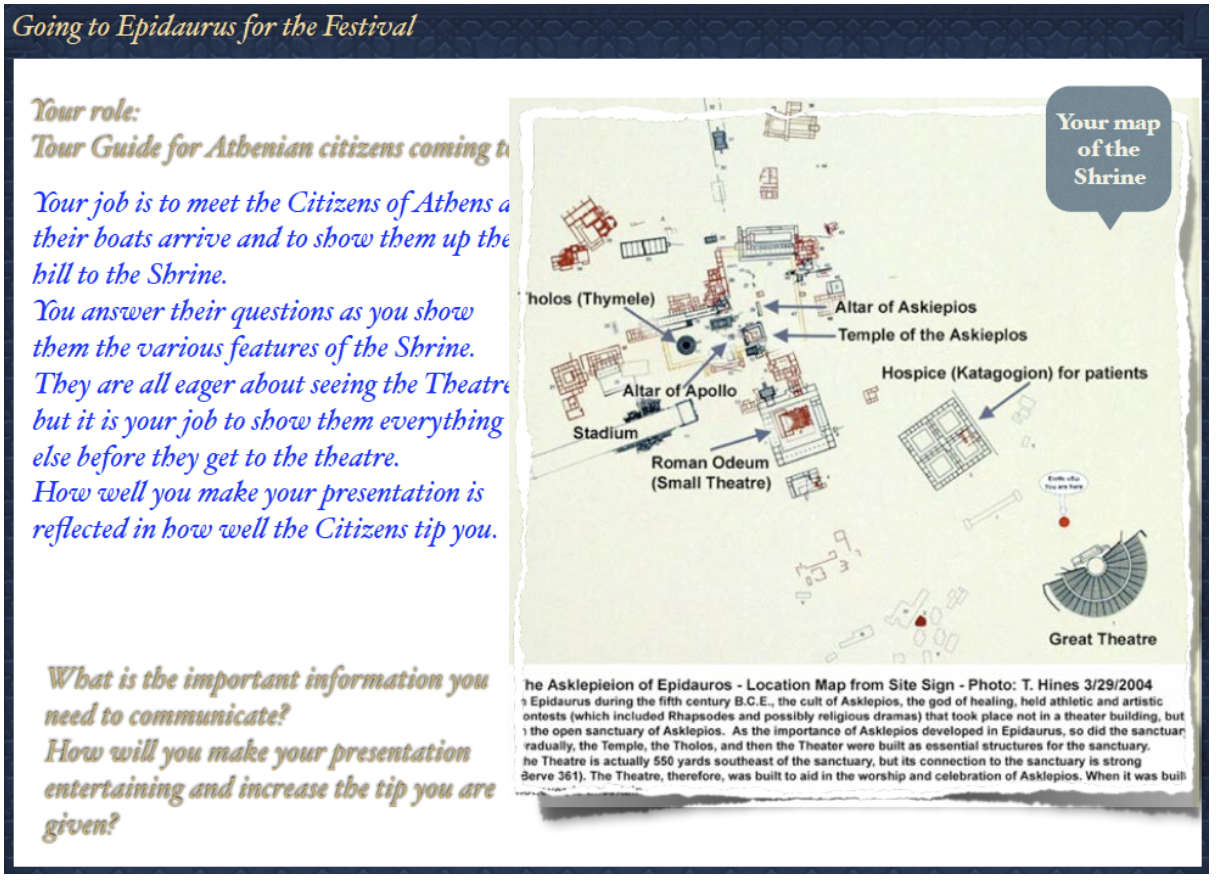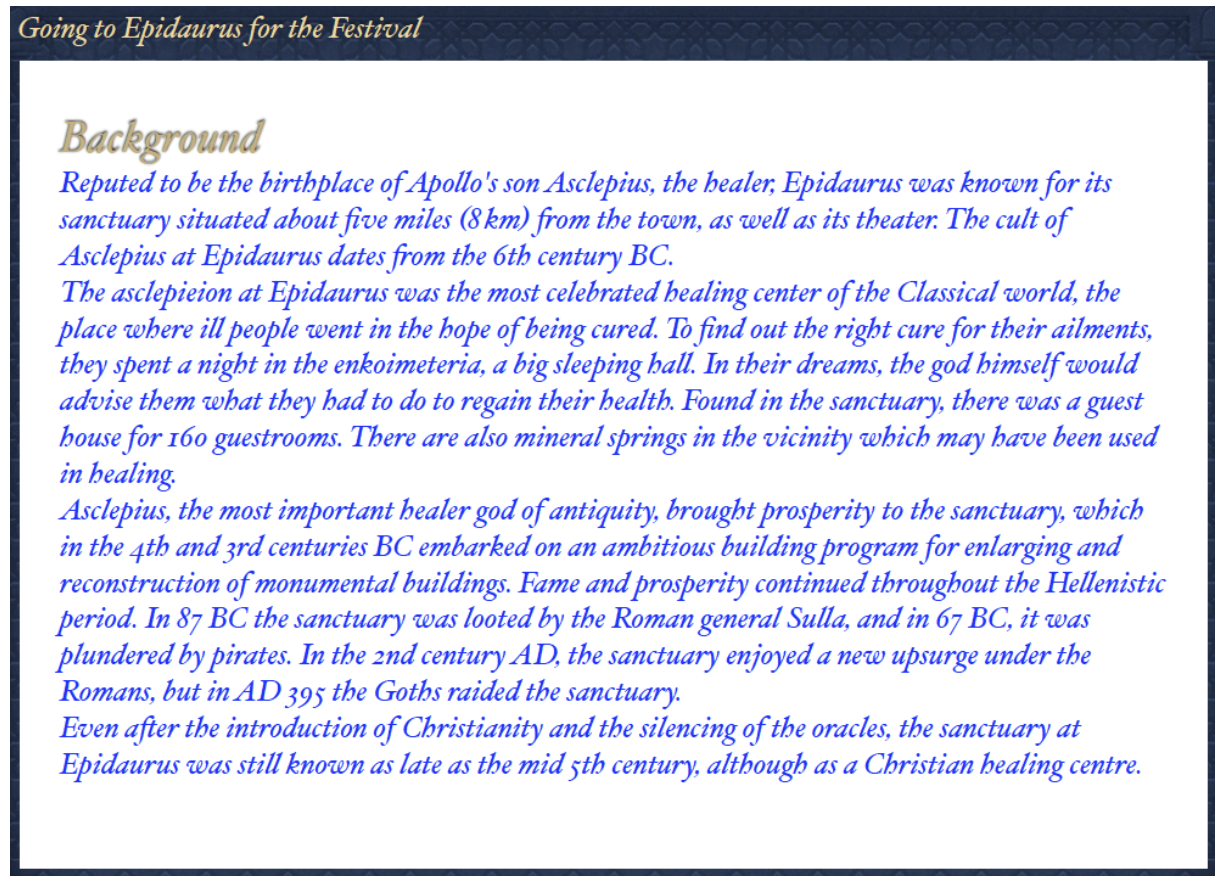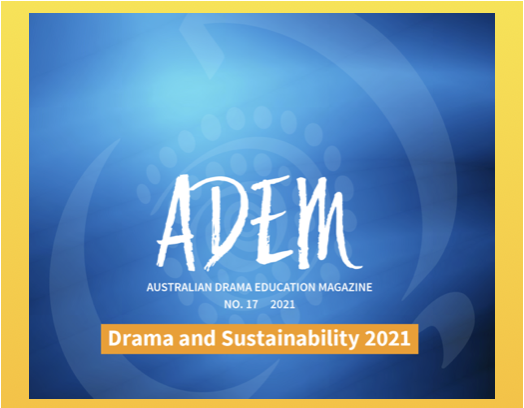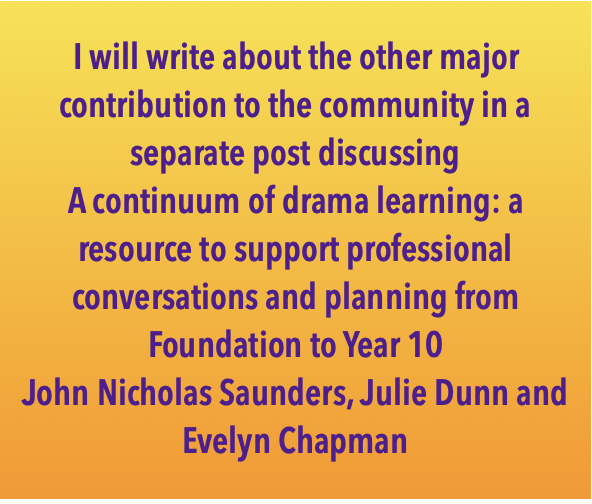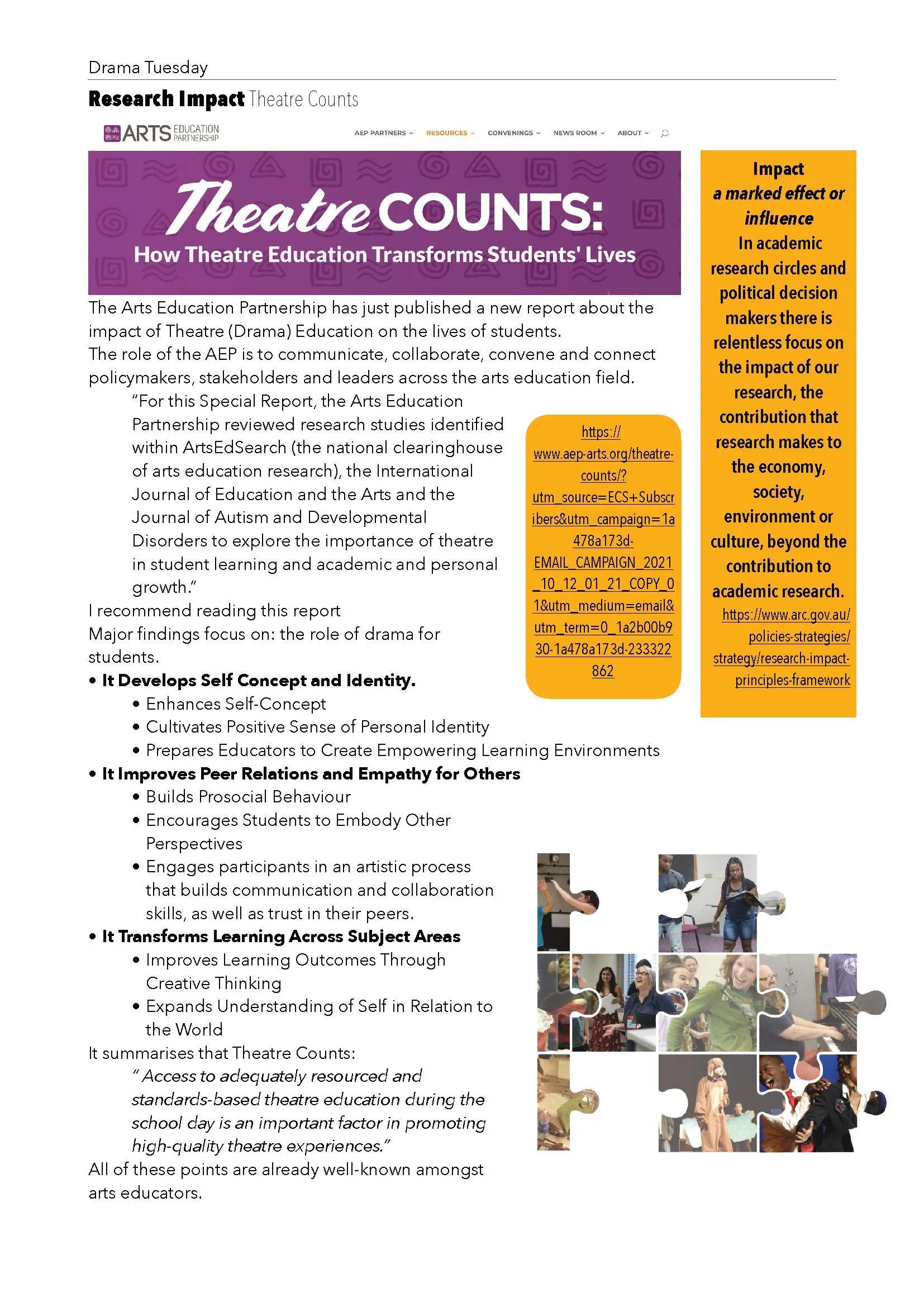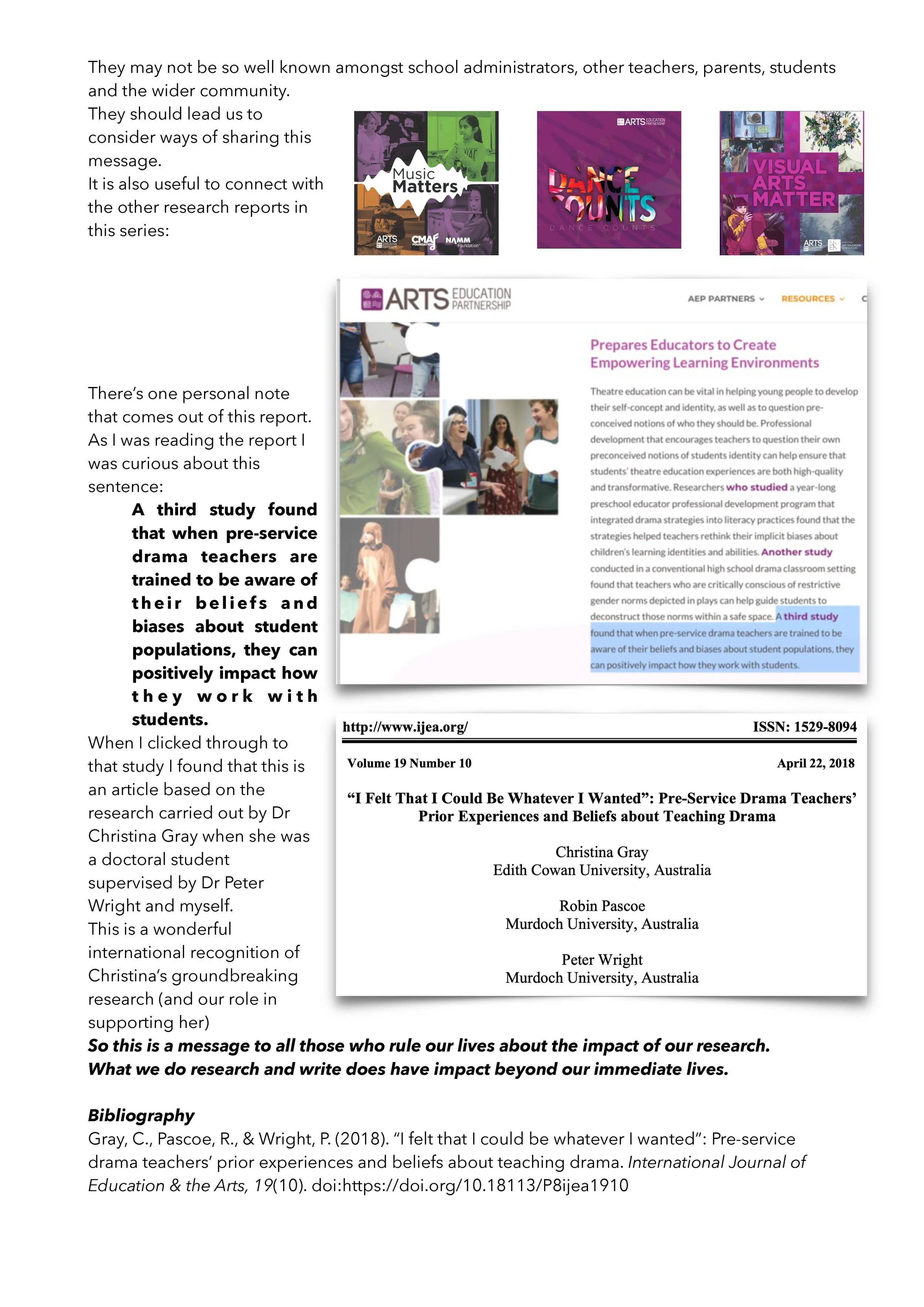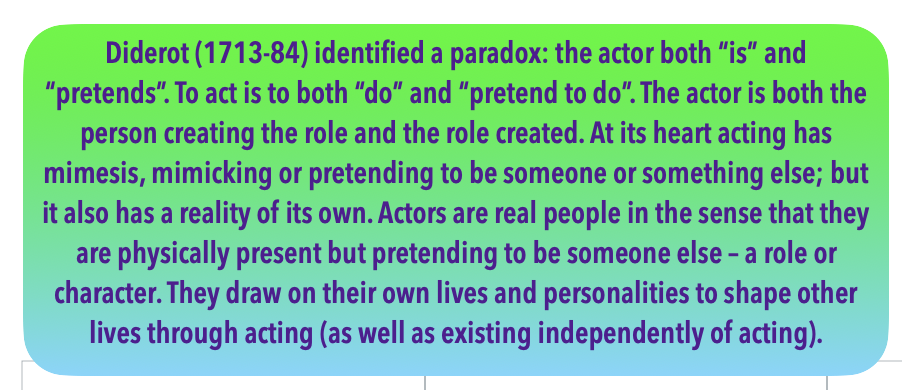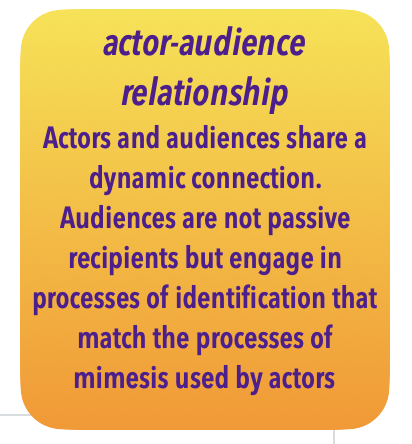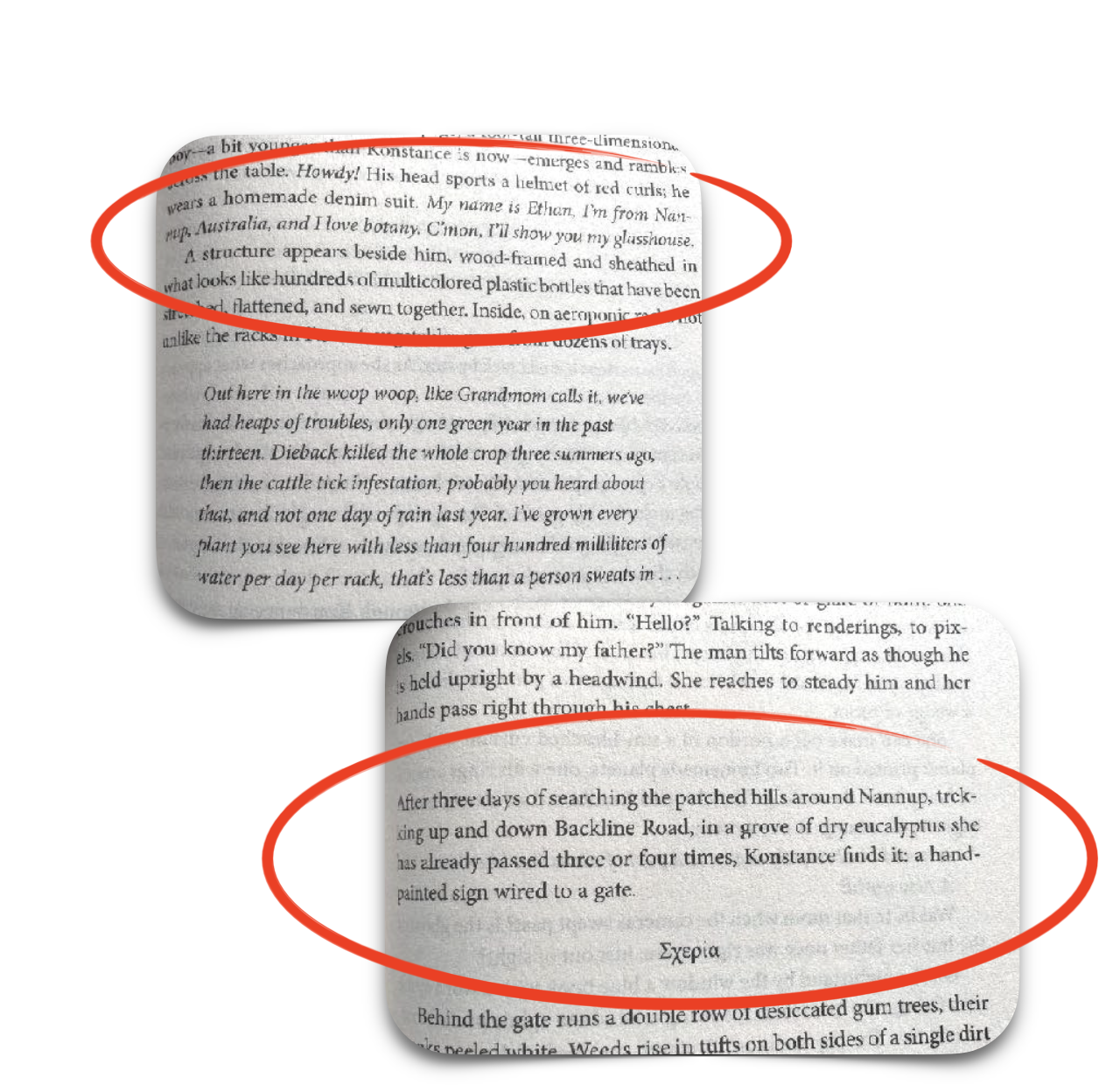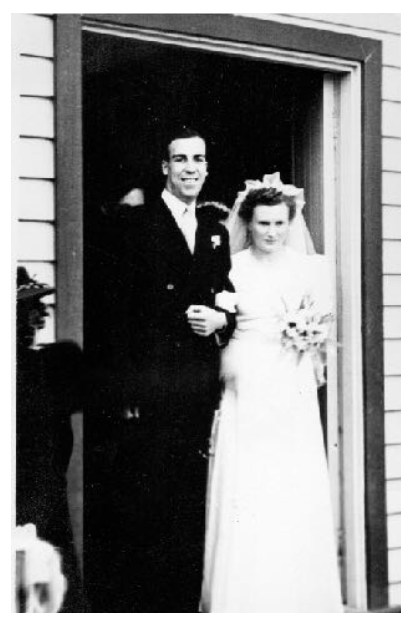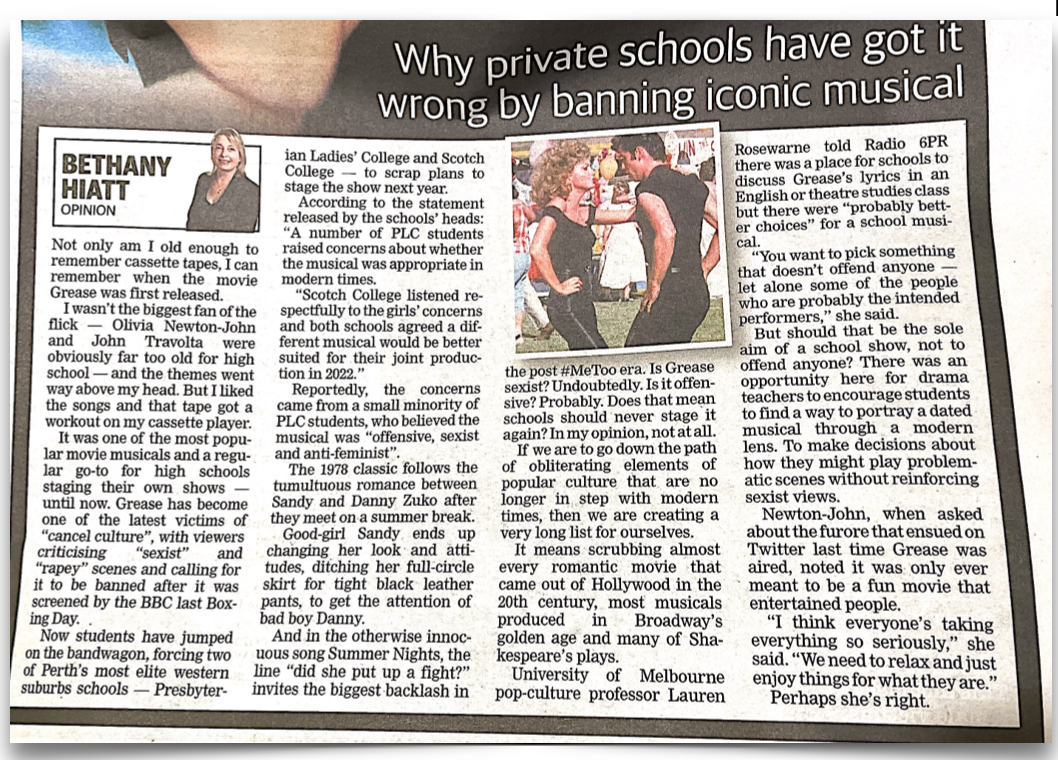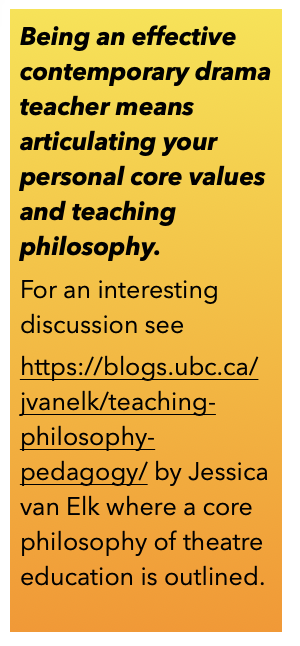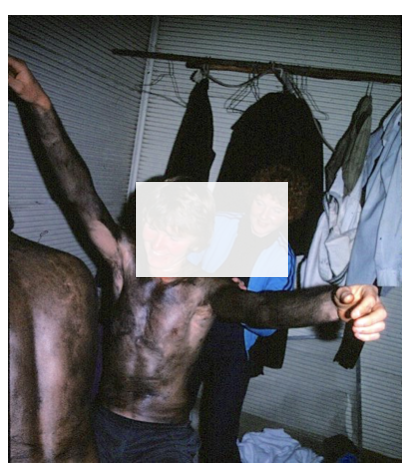Drama Tuesday - How to Make a Drama Teacher
/How to Make a Drama teacher
I return to a favourite topic: I am preparing a proposal to present at the next IDEA Congress in Reykjavik Iceland in July 2022 (More information available at: https://ideaiceland.com).
Again, I propose talking about Drama Teacher Education. I wanted to include a fun way of thinking through this issue and share with you the latest tongue in cheek recipe for making a drama teacher.
Happy to let the images speak the words:
Music Monday - ANZAC Day
/Anzac Day. One of the most important days in the Australian calendar year. Over my 45 plus years of teaching I have witnessed the resurgence of observation of Anzac services in schools. Back in 1975, as a young high school Music and English teacher I was fresh from the moratorium marches of the Vietnam war years and not wanting to be seen to glorify war in my choice of songs for Anzac Day. So, it was “I Was Only Nineteen” rather than the more patriotic traditional choices. Emphasising the futility, rather than the glory, of war.
Nevertheless, in our family – like so many Australian families – we have our own WW1 story; that of my great uncle Sam’s untimely death at Passchendaele, Belgium on 17 October 1917.
Samuel Vaughan Selby was a dentist, working at rebuilding soldiers’ destroyed faces after shelling. He received a white feather which shamed him into direct combat on the battlefield where he was killed on his first sortie.
Today I was sorting through music in my music room when I serendipitously stumbled on two pieces of old family music.
One was great uncle Sam’s - a work for violin and piano. He never returned home to play his violin again.
The other was one of my grandmother’s piano pieces, purchased when she was studying piano in London, after winning a place at the prestigious Royal College of Music. At the start of the war, her father sent her a cable to tell her to come home immediately as it was no longer safe to stay. Her performance career was cut short, and she returned to Perth to work as a piano teacher for the rest of her 84 years. My grandmother was Samuel Selby’s sister.
So here, on my bookshelf, are two volumes of music, each representing music silenced by war.
Where are the songs about that?
Drama Tuesday - First Voice
/How do you teach Theatre History?
One of the perennial problems about fully developed drama education courses is finding ways of engaging students with the drama and theatre of other times and places. We became frustrated with the usual approaches – finding a television documentary and slapping students down in front of 60 minutes. All that sort of teaching encourages is passive engagement. The students who are interested focus; the rest get bored quickly.
Of course, you can ask students to take notes – or fill in a work sheet – but it is still deadly theatre (to steal a term from Peter Brook). The other approach is to send students off to the Library or to do Google searches. The result is always skewed or idiosyncratic viewpoints of a particular author and the perennial problem of “cut and paste”. Where is the development of critical thinking that promotes questioning and, above all, linking to the student’s own practice.
Of all the reasons that we ask students to consider drama of other times and places, is the hope that they will take ideas from the long trajectory of drama and theatre over time and place and apply ideas to their own drama making. It must not be drama knowledge for drama knowledge’s sake.
In my drama teacher education classes at Murdoch University, the concept of these introductions in First Voice were developed into workshops where students took on the roles of, for example, making the journey to Epidaurus for the Festival of Asclipios.
The aim – as always in my drama teaching – is to embody knowledge and learning.
Drama Tuesday - Drama Australia Creating Community
/To subscribe to Drama Australia publications
Drama Australia AdministratorPO Box 1205, Milton, QLD 4064. AUSTRALIA
Ph: +61 7 3009 0664
Fax: +61 3009 0668
email: admin@dramaaustralia.org.au
It’s always exciting when Drama Australia publishes ADEM, the Australian Drama Education Magazine. ADEM sits alongside the fully referred NJ - Drama Australia Journal. It is designed to create community and share news.
This themed edition celebrates 10 years since the publication of Drama Australia’s Acting Green Guidelines (2011) – https://dramaaustralia.org.au/assets/files/Acting%20Green%20The%20case%20studies(1).pdf. ADEM calls for a timely revision and invites responses to a survey (https://www.surveymonkey.com/r/YQVK8G2) on ways of moving forward.
Drama Australia’s Acting Green guidelines were built on the understanding that sustainable drama and theatre practice and teaching about sustainability through drama are ways to directly involve students in understanding their connections with the natural environment, and the interdependence of systems that support life on Earth. They connect to the Australian Curriculum (ACARA)
The articles focused on Drama and Sustainability are a clear commitment to engaging with this key issue.
Eco-anxiety and Drama Education, Jo Raphael.
Unity in troubled times, Darcie Kane-Priestley, Emma McDonald, and Julia Prestia.
Two articles offer drama curriculum ideas based on children’s literature.
Susan Chapman writes about Drama giving voice to sustainability through an Arts immersion approach, exploring the novel Chelonia Green, Champion of Turtles (Mattingly, 2008).
Helen Sandercoe outlines a process drama based on ‘Circle’ by Jeannie Baker,
Learning about ecoscenography Tanja Beer.
Beyond the pandemic: Seeking sustainability in online drama education, Andrew Byrne, Susan Cooper, and Nick Waxman.
The final section provides 2021 Reflections from the State and Territory member Associations of Drama Australia.
In these times where the COVID-119 Pandemic has increased our sense of isolation, the value and need for a shared community of practice – as provided by Drama Australia and member associations – is essential and necessary.
Thank you Drama Australia for this latest initiative.
Thanks Dr Jo Raphael (Editor) and Danielle Hradsky (Associate Editor).
Music Monday - Using song cues for learning intervals.
/I’m sure that we have all used song cues in the learning and teaching of musical intervals (the difference in pitch between two sounds).
An understanding of intervals is crucial to our understanding of the shape of music, the structure of scales and chords and intune singing. Understanding intervals is also pretty important for passing music theory exams!
My earliest memory of using song cues was thinking the opening phrase of “My bonny lies over the ocean” to identify a major 6th as a child preparing for the aural component of AMEB piano exams.
During my teaching career I have created lists of song cues and used other teachers’ lists and suggestions too.
Recently a community of singing teachers I am part of was discussing the challenges of singing a perfect 4th. One member posted the following link as a comprehensive list of song cues for intervals. It was certainly one of the most comprehensive I had come across and so I share it with you. There seems to be a song for everyone on this list.
https://www.earmaster.com/products/free-tools/interval-song-chart-generator.html
Happy music teaching!
Music Monday - Welcome back to another year of music making.
/Here in Western Australia the music teaching community, refreshed after the 6-week hot summer break, turns its attention to the arrival of the omicron variant of Covid19.
For those of you reading from afar, WA has maintained until now a firmly closed border (a matter of vigorous political debate) and so we are only now experiencing the start of our own omicron wave.
After a relatively normal 2021 teaching year, teachers here are now joining the ongoing international and interstate discussions about the most suitable masks to wear while singing. Or whether performing groups in schools should be limited to single year cohorts to minimise potential viral spread within a school. Or whether choreography for the school musical can include body contact with another performer.
One of my singing students happily picked up a gig in a Perth Fringe Festival show this week after the original singer was sadly deemed a close contact of a positive case and forced into isolation. There are winners and losers at this time.
There is much uncertainty about how this semester will proceed in schools. Some disruption seems inevitable. I found yesterday’s all-day teaching in a mask very tiring. So did my students and teaching colleagues.
Our daughter in the USA has been doing this for two years. It feels odd to her to be not wearing a mask now.
News from interstate suggests that omicron might be receding. That is good news. But will another wave follow?
Right now, the questions outnumber the answers.
To end on a completely different note, so many of us were saddened to learn of American actress Betty White’s passing on 31st December 2021. Did you know that in her early career she also sang? Take a listen to this:
Enjoy your day!
Drama Tuesday - Identification
/The Experience of Humanity
Key to the experience of drama – as an audience member but also as an actor and director – is our capacity to empathetically identify with characters and situations in drama.
That doesn’t mean that we have to “Cry 'Havoc,' and let slip the dogs of war” in bloody assassination or become a husband and wife team intent on regicide or be an abandoned fourteen year old swallowing a potion to fake death when abandoned by her lover. But, when we experience drama we share some of the emotion and thinking. We laugh or cry; our senses and emotions work in overload.
This is a tricky issue (particularly for some parents and community members) who fret at the idea of children confronting issues and emotions – and fear of losing control.
But at its heart identification is the concept of recognising that drama is experiencing the shared experiences of being human. Drama, particularly great and lasting drama, works directly on our senses of seeing and hearing. It impacts on our focus and attention , our thinking and emotions. It registers with us somatically, our breathing rates, our postures, our muscles. All of this physical action is directed towards the mental and emotional understanding of people (who could be like us, or not) in situations and relationships (that we can imaginatively enter).
As much as I can say, rationally, that what I am experiencing in drama is just an actor representing action symbolically, the significance lies in the connection with the human experience of others because I am standing in their shoes as if it were happening to me.
To put it another way, identification in drama is the moment that has the Ah Ha! impact.
All of this is preamble for the following. An analogous experience in literature – reminding us of the connection between the arts
In a lifetime of reading, a new experience.
I turned page 357 of Anthony Doerr’s Cloud Cuckoo Land and find for the first time a fictional representation of Nannup.
My parents Nannup wedding 1949
Nannup is my mother’s heart land. She grew in this South West Western Australian timber town. In school she won the prize as Dux of Grade 7 when she was 12. She lived with her mother Win and sister Carmel and brother Francis. After her death we found that she was born out of wedlock. (See the investigation by our Historian/Doctor son, Phillip, for that story.)
The black and white photo of her wedding shows her outside the wooden church with my father, Richard (mostly known as Dick). In summers camping at Dunsborough we would make family pilgrimages to Nannup – in scalding heat, of course. It is heart land for me too. Songline contours on my soul.
It is therefore strange to finally come across a fictional telling of Nannup.
I read on.
Drama Tuesday - Casting the First Stone
/In my previous post I noted the report on The West Australian about the school production of Grease being cancelled.
…students have jumped on the bandwagon, forcing two of Perth’s most elite western suburbs schools –presbyterian Ladies’ College and Scotch College - to scrap a stage show next year.
According to the statement released by the schools’ heads: “A number of PLC students raised concerns about whether the musical was appropriate for modern times.
“Scotch College listened respectfully to the girls concerns and both schools agreed…”
Leave aside the implied values of terms like “most elite”. I am no advocate for Grease. In fact, I have often wondered about its underlying message and depiction of gender issues. But I do open discussion on two issues about censorship and those who censor.
What is (or is not) appropriate for inclusion in drama classes?
Who makes the choices about what topics or plays are explored in drama?
Plato’s famous disparagement of theatre and forms of representation is often echoed in forms of distrust and fear in our own times. The Puritans – and the new Puritans of our own times – rail against drama. Sometimes out of fear and sometimes from misunderstanding the nature of the experiences of identification and catharsis that lie at the heart of what happens when we witness others taking on role. In a forthcoming chapter I mention that some people dismiss drama: “Drama is just pretending/a form of lying or dishonesty/unleashes undesirable thoughts and feelings/encourages rebellion/challenges authority/is subversive” (Drama teacher education – a long-view perspective Robin Pascoe https://orcid.org/0000-0002-9650-892X )
There are plenty of people with varied agendas who find the presence of drama in the school curriculum as challenging them and their authority.
But, it does bring us as drama educators to fundamental questions: what is appropriate content for investigation through drama? Is there any topic beyond bounds? Is there any language that is inappropriate? Are there any plays that we should keep away from children and students? (As often as Shakespeare is held up as the given canon for study, there are the critics like Dr Bowdler who deemed it fitting and proper to bowderlise the Bard – to expurgate, omit or modifying the parts considered offensive and morally objectionable.
What is interesting about this moment in time is that we are seeing different groups of people taking on the roles of censors. The conventional image of the Mrs Grundy Censor – elderly, judgmental, narrow-minded – is giving way to an equally judgmental activist younger person.
The debate on cancel culture is hot and divisive. At times it does call out questionable practice. It can also cripple debate. It is hijacked by political hacks. But the drama classroom cannot be immune to the culture in which we live.
In the current unit I teach, I ask students to articulate their Theoretical Frameworks as a set of lenses through which to view Crucial Incidents in their Professional Practice. That involves stating and exploring their knowledge and theories of knowledge (epistemology); they need to explore their worldview (ontology); they need to recognise they have developed ideology; and, that their values (axiology) impact on their practice (praxeology). All those baffling scary –ology words
No drama teacher can retreat to a hermetically sealed drama room.
Drama education must be a part of its wider world.
Mea culpa
I don’t want it to be thought that I haven’t been guilty about this issue. (One of my tag lines as a drama educator was that, with hand on heart, I could say that I teach from experience because I have made almost every mistake in the book and lived to tell the tale).
Looking through old production photos I found this from one of our productions (production name and place discretely withheld; faces obscured).
In the spirit of involving the whole school in the “school production” we persuaded the Student Councillors (male, of course) to make a cameo appearance as wandering desert Aboriginals clad in footie shorts and charcoal daubed bodies. Yes, looking back, it was a cringe-worthy moment. It’s no justification to say that there was only one indigenous student in the school (cultural issues of place meant the town was avoided) In the current climate and with what we now know and think, we wouldn’t do this. We were younger and greener. And, "the past is a foreign country; they do things differently there." (wrote L.P. Hartley inThe Go-between), echoing, perhaps, Kit Marlowe.
Would I do it now? Of course not. But it is useful to remind ourselves that we change and grow and develop across our careers. We are not the people we once were when we began – and. that is mostly a good thing. The passion and the drive we began with still can burn but it needs to be tempered in the crucible.
See also https://ncac.org/resource/the-show-must-go-on the Educational Theatre Association (EdTA), in collaboration the American Alliance for Theatre and Education (AATE), and the Association for Theatre in Higher Education.



